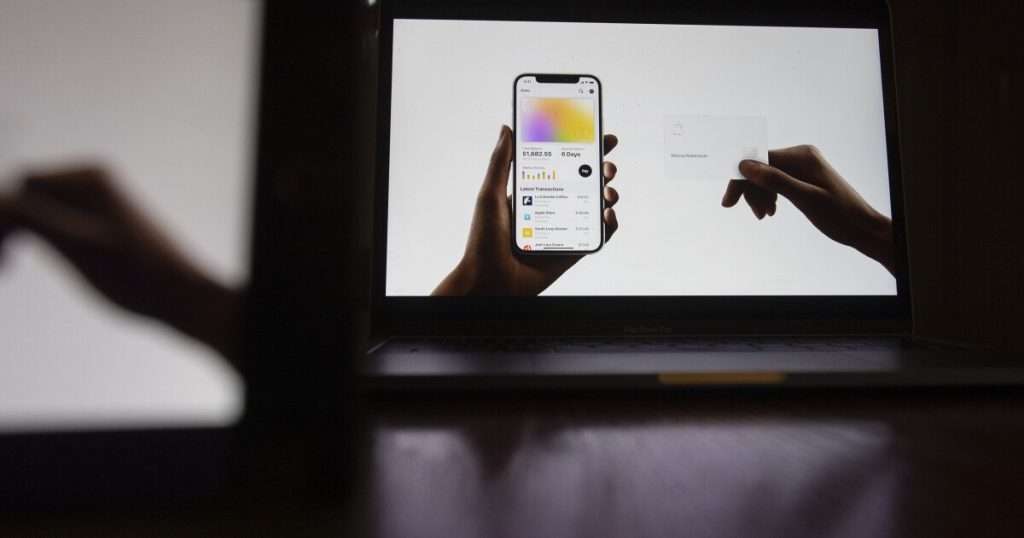UPDATE: This story includes information about Goldman Sachs’ recent retreat from the consumer banking business.
The Consumer Financial Protection Bureau took action Wednesday against
The CFPB is ordering
Both companies played unique roles in the Apple Card that resulted in widespread consumer harm, the CFPB said. Apple failed to send tens of thousands of consumer disputes to
The CFPB said hundreds of thousands of consumers were affected and faced long wait times to get their money back for disputed charges. Some cardholders also had incorrect negative information added to their credit reports, the agency said. The two companies also misled consumers about interest-free payment options for iPhones and other Apple devices.
A
“We worked diligently to address certain technological and operational challenges that we experienced after launch and have already handled them with impacted customers,” said Nick Carcaterra, the bank spokesperson said.
An Apple spokesperson said the company “is committed to providing consumers with fair and transparent financial products.”
“While we strongly disagree with the CFPB’s characterization of Apple’s conduct, we have aligned with them on an agreement,” the spokesperson said.
The CFPB’s investigation revealed that key systems weren’t ready when the partners launched the Apple Card in mid-2019. The companies received third-party warnings early on that
“The execution was a mess,” CFPB Director Rohit Chopra said on a call Wednesday with reporters. “These failures are not mere technicalities. They resulted in real harm to real people.”
Chopra said that
Apple had negotiated a contractual provision that allowed the iPhone maker to penalize
The CFPB’s investigation found violations of the Consumer Financial Protection Act and the Truth in Lending Act.
The CFPB described a cardholder dispute process that was plagued with issues. Apple Card users were directed to dispute transactions through a “Report an Issue” feature in the Wallet app. But for some disputes, Apple sent consumers a separate link in its Messages app asking for more information.
Apple also failed to send certain disputes to
The CFPB said that when Apple did send disputes to
Further, the CFPB said that Apple marketed an installment plan that allowed cardholders to purchase Apple devices through a series of interest-free payments over a period of six months to two years, but many cardholders were unknowingly charged interest because they were not automatically enrolled.
Apple only provided the interest-free payment plan to consumers who used Apple’s Safari browser, the CFPB said. As a result, thousands of cardholders who used other browsers purchased Apple devices on interest-bearing revolving balances and incurring interest charges, instead of making interest-free payments, the bureau said.
The companies also misled cardholders about refunds. The CFPB described the Apple Card monthly installments plan as having two card balances — the plan balance and an interest-bearing revolving balance.
For more than 10,000 cardholders,
The Apple Card was a partnership between Apple, based in Cupertino, California, and New York-based
More recently,
The CFPB said Wednesday that if
But recent comments by
“I think we’ve been pretty clear in our messaging that we are continuing to narrow our consumer footprint,”

